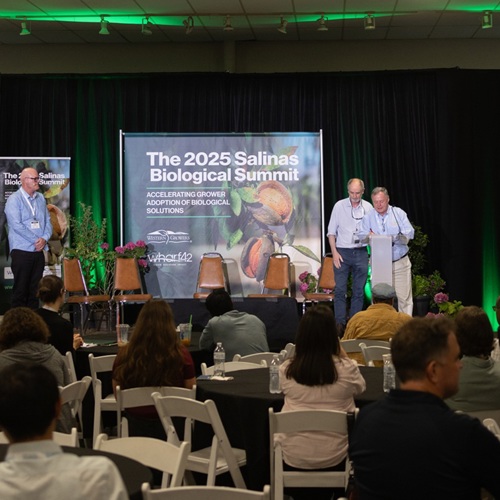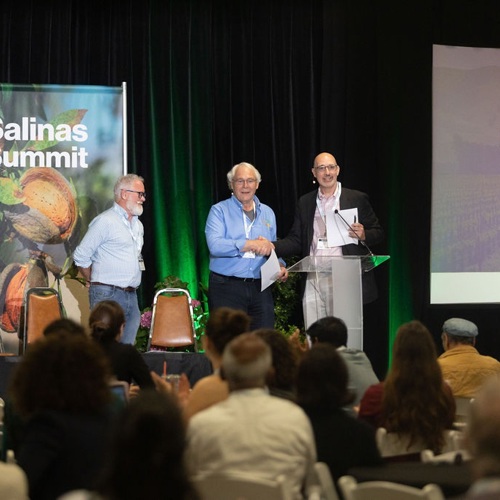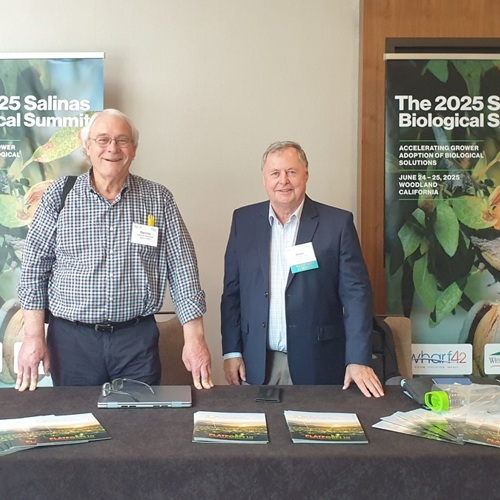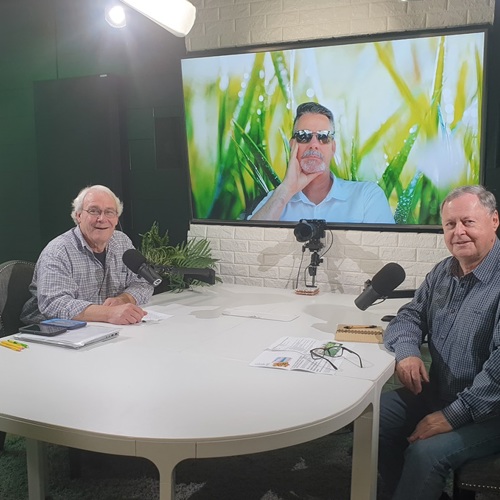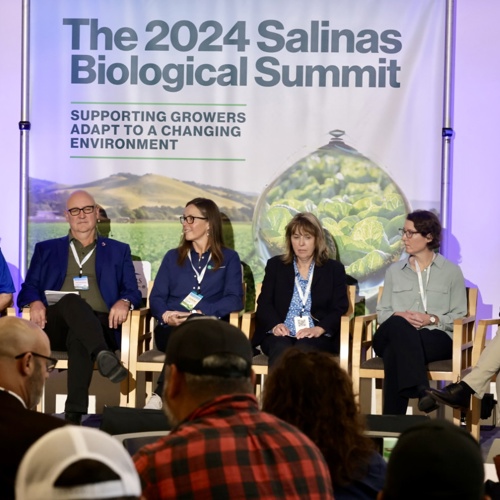Today, 99 percent of U.S. table grapes are produced in California's warm, dry climate that is ideal for grape growing. With 90 grape varieties grown, California grapes come in three colors—green, red, and black—and are in season from May through January. Additionally, more than 60 different varieties of grapes are planted for use in making wine.
Grapes are however susceptible to a number of diseases and pests. The Platform10 Grape Field Trials are designed to address these. The diseases include;
|
Mealy bug can cause damage to grapes by contaminating clusters with cottony egg sacs, larvae, adults, and honeydew, which can lead to black sooty mold. Three species of mealy bug can transmit grape viruses. Powdery mildew, Uncinula necator, is a fungus that can cause reduced berry size and reduced sugar content as well as scarring and cracking of berries. Infected blossoms may fail to set fruit. Botrytis can significantly reduce yield and quality of grapes. Also called gray mold and bunch rot, Botrytis leads to reduced yield and postharvest losses during storage. |
The Grapes Field Trial Process
Grower Trial Implementation
Efficacy Data. Based on the mode of action (feeding deterrent, contact active, induced systemic resistance, mating disruption, etc.) data will be collected on pests and disease incidence, damage ratings, yield, product quality, effects on nontarget organisms including soil microbes** and the ability to avoid using one or more chemical product applications. Results may be published in academic journal (eg. Arthropod Management Tests (AMT) or Plant Disease Management Reports (PDMR)). Protocols will be designed in consultation with the applying company to assess how the product works when incorporated into a more integrated farming system.
**Microbial soil health data. Soil samples may be taken by a third party before and after testing and will be sent to a suitable laboratory to determine effects on the soil microbiome. Metrics typically assessed are microbial diversity and quantity, types of microorganisms (pathogens, nitrogen fixation, carbon sequestration, etc.
What is Mealy Bug?
In each crop field trial, we look at one key disease impacting on growers. In this edition, it's Mealy Bug.
Mealybugs are sap-sucking insects that live on a wide range of host plants. They can infest vines and affect grapes by contaminating bunches and producing honeydew which encourages the growth of sooty moulds.
Adult mealybugs are soft-bodied, segmented insects covered in white powdery wax, with characteristic filaments around the edge of their bodies. They are slow moving and feed on sap, secreting honeydew as a by-product of their feeding activities. They live in colonies composed of adult females, eggs and young (nymphs).
The Platform10 Field Trial program has identified Mealy Bugs as a key pest to address.
The Growers
Platform10 are delighted to be working with outstanding Western Grower members.

Kevin Andrew
In 2014, Illume recruited Kevin to create a table grape program built on the concept of staying ahead of the expanding innovation curve with a full suite of proprietary, new varieties. As Sun World’s COO and head grower for 20+ years, Kevin was responsible for growing operations comprising 20,000+ acres of table grapes, citrus, stone fruit, and row crops in the San Joaquin Valley/Mexico and over 3,000 acres in the Coachella Valley.
Kevin’s growing ability is incomparable in the industry; breeders often use his crops as their “showcase” vineyards for grower and customer tours, as well as seek his advice on how to develop and grow their varieties.
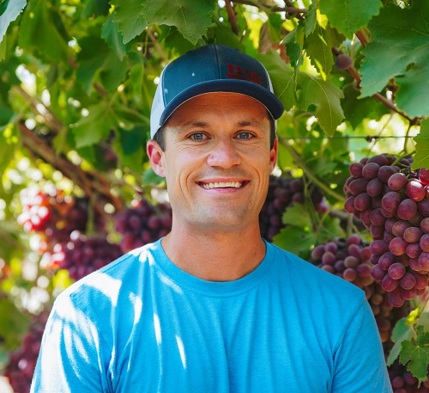
Drew Ketelsen
Drew Ketelsen, Vice President of HMC Farms, was raised in South Lake Tahoe, CA and earned his bachelor’s degree in civil engineering from California Polytechnic State University, San Luis Obispo. While not originally from California’s Central Valley, Drew has found himself right at home and enjoys the daily and long-term challenges of farming.
Because of his unique background, he offers a different perspective and skill set to HMC and agriculture, challenging the industry to find solutions that are outside of the ordinary. Drew has traveled and connected extensively with international ag tech groups on behalf of the organization and is the lead on the agricultural and technological advancements for HMC.
What's Next?
We will be posting updates on the progress of every field trial on this website. Timings will depend on crop cycles and we will only update when meaningful data is available.
If you believe you have a product that can help address the disease challenges identified above, please email platform10@salinas-summit.com
Our field trial programs are ongoing. Platform10 recognizes the importance of emerging science and research and is keen to support biopesticide companies looking to commercialize that science and research and take it to market.



